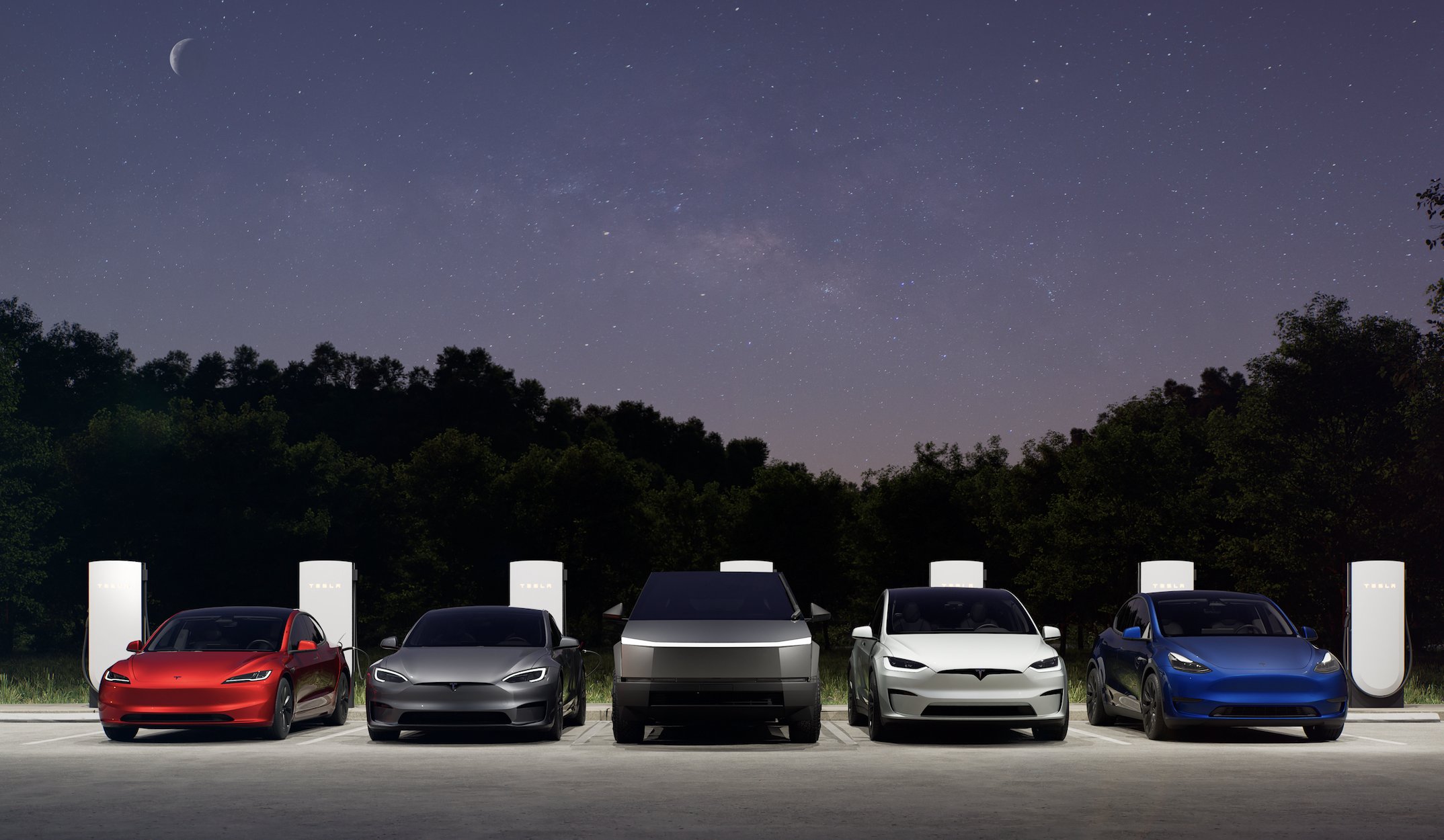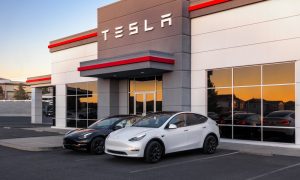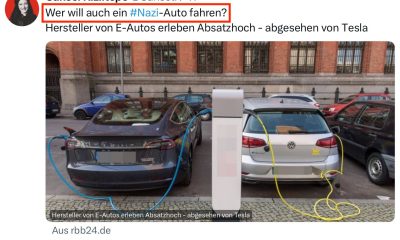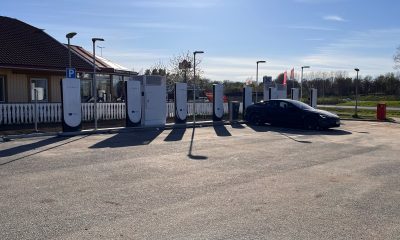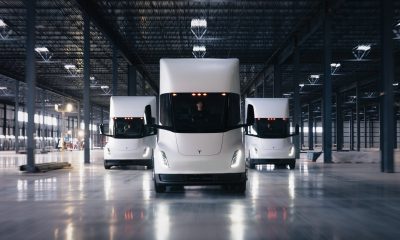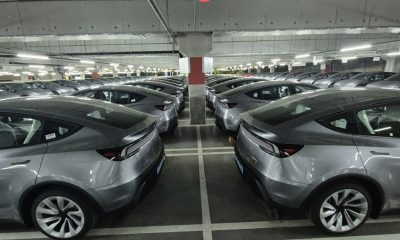A quick look at the electric vehicle community’s sentiments about Elon Musk on X and platforms like Reddit would suggest that the CEO’s increasing political nature has now become Tesla’s largest liability. Yet as per S&P Mobility, Tesla’s brand loyalty is still incredibly strong. This suggests that even in today’s social media-driven landscape, good products still drive sales and loyalty.
Tesla’s resilient brand loyalty
In its post, S&P Mobility noted that among individual brands, “Tesla continues its run as the leader in brand loyalty with a rate of 67.8% for the first half of 2024.” Vince Palomarez, associate director of loyalty product management at S&P Global Mobility, also noted that Tesla’s customer loyalty has remained constant.
“Tesla has historically been a brand with strong loyal ties among their consumer base, despite a limited product portfolio. Changes in BEV prioritization among other OEMs, along with Tesla’s directive to cut pricing when needed, has kept households from defecting,” Palomarez noted.
S&P Mobility’s findings are extremely interesting as social media trends and media reports have practically been unanimous about the idea that Elon Musk has become poison to Tesla’s brand. As per Palomarez, however, the data does not support this narrative–at least for now.
“We can only report on what we see in the data. In this instance, there is some decline in Tesla’s loyalty for the first half of 2024 vs. 2023; however, it is below one percentage point,” he said, noting that Tesla is still clearly beating other brands. “The brand still remains the industry leader in brand loyalty by a healthy margin. For comparison’s sake, the industry brand loyalty average stands at 52.5% for H1 2024 and no other brand has a loyalty rate above 60%,” the S&P Global Mobility associate director noted.
Good products drive sales and loyalty
Perhaps one of the reasons why Tesla still sees strong brand loyalty among consumers is the fact that the company produces good products, from its electric vehicles to its battery storage systems. Even if Tesla’s vehicles have been beaten by other competitors when it comes to range, efficiency, and 0-60 mph times, the company’s vehicles offer the best value for their price.
A good example of this is the re-engineered Tesla Model 3 Performance, which is an absolute steal at $55,000 for the performance, tech, safety, comfort, and features that it offers. The same is true for the Tesla Model Y, which has effectively outsold its rivals in the all-electric crossover SUV segment despite having the same exterior design since its March 2019 unveiling event.
Consumers gravitate towards good products, leadership be damned. A look at the strong sales in the United States of the Volkswagen Beetle Type 1, a vehicle whose creation was driven by Adolf Hitler’s desire for a people’s car, proves this. The Volkswagen Beetle Type 1 became extremely popular in the United States in the 1960s, less than two decades after World War 2. All in all, almost 5 million Beetle Type 1 units were sold in the United States out of a total of 21.5 million cars worldwide. Part of the reason behind the Beetle Type 1’s success in the U.S. is due to the fact that it is just a great, bang-for-the-buck car.
The list goes on. Ford’s founder, Henry Ford, held deeply antisemitic views. He even brought a local newspaper to publish his own anti-Semitic writings. Ford has thrived despite its founder’s questionable ethics, and the company still produces the best-selling car in the United States today–the F-Series pickup trucks. The 47-year reign of the F-Series as America’s best-selling vehicle could be attributed to the fact that they are just great trucks.
Most amusing is the Reimann family, which owns a controlling stake in JAB Holdings. In 2019, it was revealed that the Reimann family had close ties to the Nazi party. Despite this, one cannot deny the fact that JAB Holdings’ brands, which include Krispy Kreme, Jimmy Choo, and Pret-A-Manger, are still loved by consumers because of their quality and consumer appeal.
Elon Musk’s tweets
There is no doubt that since acquiring Twitter, Elon Musk has become far more willing to share his views on a number of issues, from US and international politics to gender ideology. There is also no doubt that the negative slant in media against Musk and his companies is at an all-time high. The Guardian, just last week, published a guide on how to “rein in” Elon Musk by boycotting Tesla, having foreign governments threaten to arrest Musk, suing the CEO under Section Five of the FTC Act, and terminating contracts with SpaceX.
Musk has always attracted negative media attention, but not at this level.
Considering the nature of Musk’s posts, it is no surprise that some consumers would indeed not purchase Teslas due to the CEO’s social media posts. But ultimately, sales and brand loyalty are a game of numbers. There is a vocal portion of the car-buying community who are extremely open about not purchasing Teslas due to their dislike or hatred of Musk. However, the lines between the EV sector and the greater automotive market are growing thinner. Thus, more regular car buyers may simply be looking at Teslas because they need a car. For such consumers, the politics of Tesla’s CEO may not be a consideration at all.
Don’t hesitate to contact us with news tips. Just send a message to simon@teslarati.com to give us a heads up.
News
These automakers are pushing to overturn California’s gas car ban
This lobbying group represents Detroit’s Big Three automakers, as well as several others selling vehicles in the U.S.
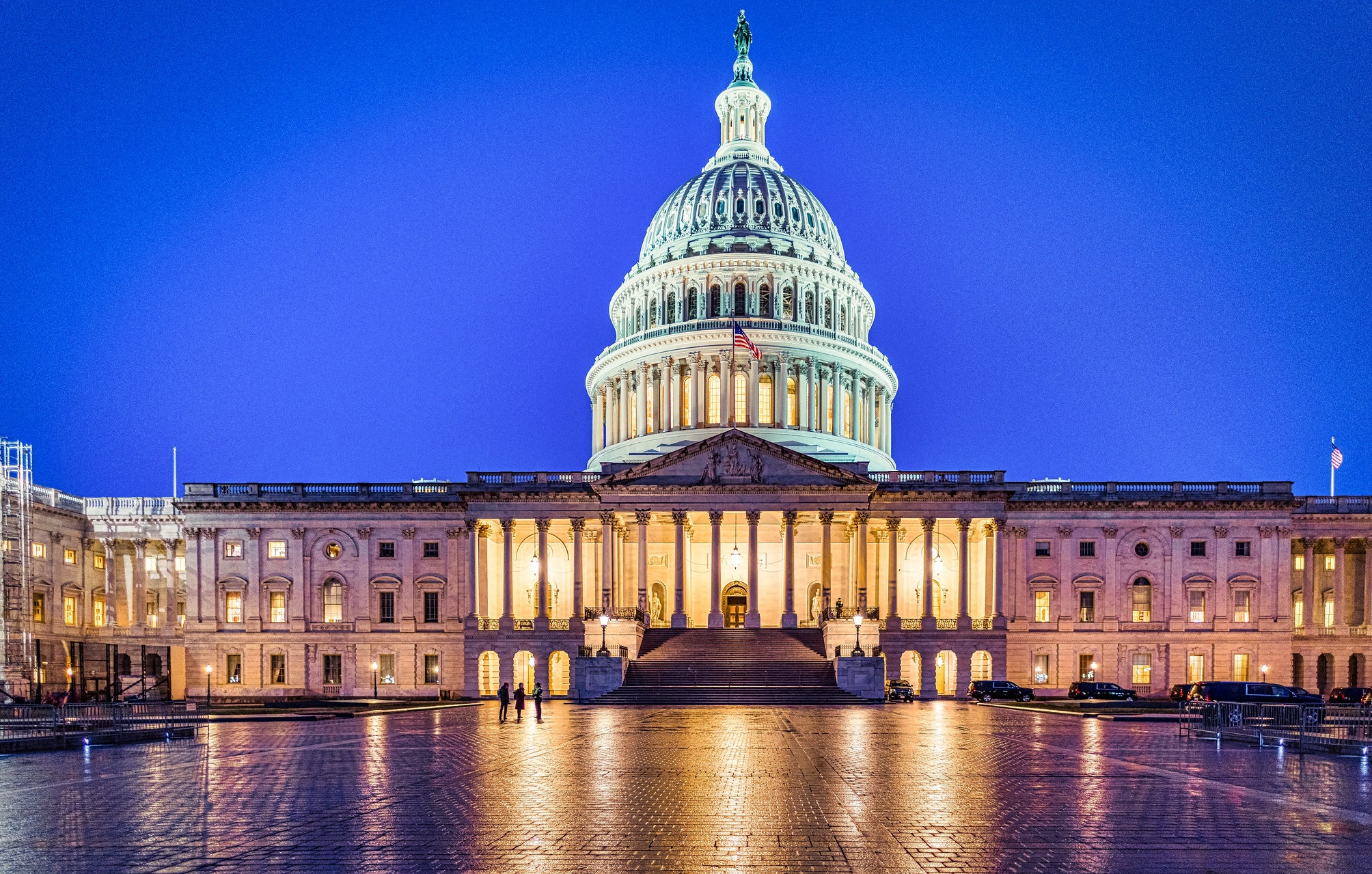
A lobbying group made up of several automakers is pushing Congress to ban California’s plan to phase out and ban new gas car sales altogether by 2035, ahead of a vote that could also affect the 11 other states that have followed with similar plans.
The Alliance for Automotive Innovation (AAI), an organization representing the interests of Ford, General Motors (GM), Stellantis, Toyota, Volkswagen, Hyundai, and several others, recently sent a letter to Congress requesting that it overturn a waiver granted to California letting it set its own emissions rules.
Later this week, the U.S. House of Representatives will vote on overturning the waiver granted to California under the 1968 Clean Air Act to impose the tightened standards, according to Reuters. In the previous letter, the AAI argued to Congress that automakers would be “forced to substantially reduce the number of overall vehicles for sale to inflate their proportion of electric vehicle sales,” adding that it would also boost prices and reduce competition in the market.
The waiver, enacted under the Biden administration’s Environmental Protection Agency (EPA), allows California to mandate at least 80 percent electric vehicle sales by 2035 under the Clean Air Act. The passage of disapproval of the waiver is being ushered under the Congressional Review Act, and an initial vote in the House of Representatives is set to take place on Wednesday.
READ MORE ON STATE EMISSIONS RULES: Tesla could face emissions credit tax in Washington
The U.S. Court of Appeals for the District of Columbia backed the EPA’s decision to grant the waiver last April, following a challenge from 17 Republican-run states. The group claimed that California was being given unconstitutional regulatory power in the decision, adding that other states didn’t have those same powers.
In December, the U.S. Supreme Court agreed to hear out bids from Valero, the AAI, and other groups to oppose the 2035 California gas car sales ban, which would begin phasing them out in 2026 if the waiver remains in place.
You can see the full list of members of the AAI below, including automakers and a handful of other tech companies.
Companies represented by the Alliance for Automotive Innovation (AAI)
Here’s the full list of AAI members, according to the lobbying group’s website:
- AESC
- AISIN
- Aptiv
- Autoliv
- BMW Group
- Bosch
- Denso
- Emergency Safety Solutions
- Ferrari
- Ford
- GM
- Harman
- Honda
- Hyundai
- InEos Automotive
- Infineon
- Isuzu
- Jaguar-Land Rover
- Kia
- LG
- Luminar
- Magna
- Mazda
- McLaren
- Mercedes-Benz
- Mitsubishi Motors
- Nissan
- Nuro
- Panasonic
- Porsche
- Qualcomm
- RV Industry Association
- Samsung
- SiriusXM
- SK On
- Stellantis
- Subaru
- Texas Instruments
- Toyota
- Uber
- VinFast
- Volkswagen
- Volvo
- Zoox
California proposal to allow self-driving tests for heavy-duty trucks
News
Neuralink’s third brain chip patient shares first video edited with BCI
The third Neuralink brain chip patient is the trial’s first patient with ALS and its first non-verbal patient, and he has detailed his experience regaining speech and more.
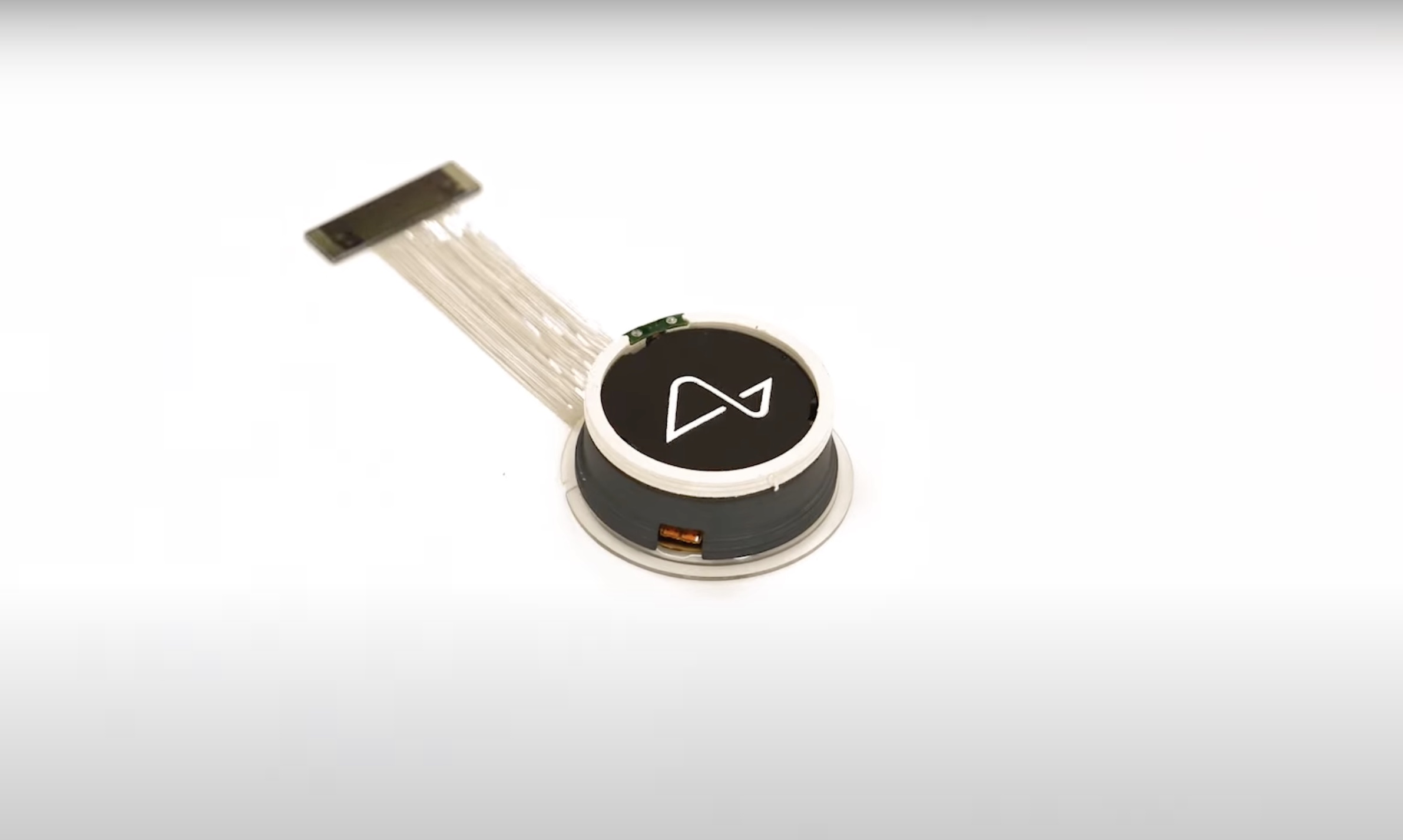
Elon Musk’s Neuralink has officially installed its brain-chip interface (BCI) into a third human patient, and the individual shared a video this week detailing his experiences gaining control of external devices and regaining the ability to talk through the use of AI.
On Monday, X user Bradford G Smith shared a video detailing his experience as the third person in the world to receive the Neuralink BCI, and as the first non-verbal patient and the first with Amyotrophic Lateral Sclerosis (ALS) to receive the implant. In the video, Smith details how the BCI works, how it’s less limiting than his previous eye tracker technology, and how it has literally helped him regain his voice through AI.
“I am typing this with my brain,” Smith wrote. “It is my primary communication.”
The video, which he says is the first edited directly with a BCI, is narrated by an AI-generated version of his old voice. Prior to the BCI, he was also unable to leave the house using his eye tracker, as it made it difficult to communicate unless he was in dark or low-light settings.
The video also shows how he’s able to connect with external devices using the BCI, with a live shots of him controlling his computer using a cursor.
You can see the full update below, which runs a little under 10 minutes.
READ MORE ON NEURALINK: Elon Musk: over 1,000 humans with Neuralink implants in 2026 is feasible
The news follows Neuralink’s initial update with Brad and other initial BCI patients, as was shared in a post on the company’s website in February. In it, Brad also explained how groundbreaking it was to be able to communicate outside and see his son win a robotics award, along with being able to consider leaving the city area for the first time in half a decade:
The most significant thing that happened this week will sound strange to you: I got to use the computer on the porch, and it worked!!
I went to [my child’s] soccer game, and the referee thought I was sleeping. I was actually able to talk outside. I [am] actually thinking about traveling outside the [city] metro [for] the first time in 5 years.
Both of Neuralink’s studies focus on restoring autonomy to people who are paraplegic through the use of external devices. The company gained initial approval from the U.S. Food and Drug Administration (FDA) to install the first BCI in a human patient in May 2023, with Noland Arbaugh being the first, a patient named Alex being the second, and Brad being the third.
Neuralink opened its Patient Registry worldwide earlier this month, allowing participants to submit to take part in the company’s initial PRIME and CONVOY studies. The firm also announced plans to operate the PRIME study out of a second location in Miami, Florida in January, after an initial location was launched in Phoenix, Arizona.
Last week, it was reported by Bloomberg that Neuralink is currently targeting a $500 million funding round at a valuation of $8.5 billion. Meanwhile, Neuralink has also been constructing office buildings near Austin, Texas, which initially aimed to be completed in May 2025.
Elon Musk
Tesla fends off new attack that will hurt consumers more than anyone else
Consumers stand to be hurt the most by a new bill that aims to take away Tesla’s Direct-to-Consumer licensing
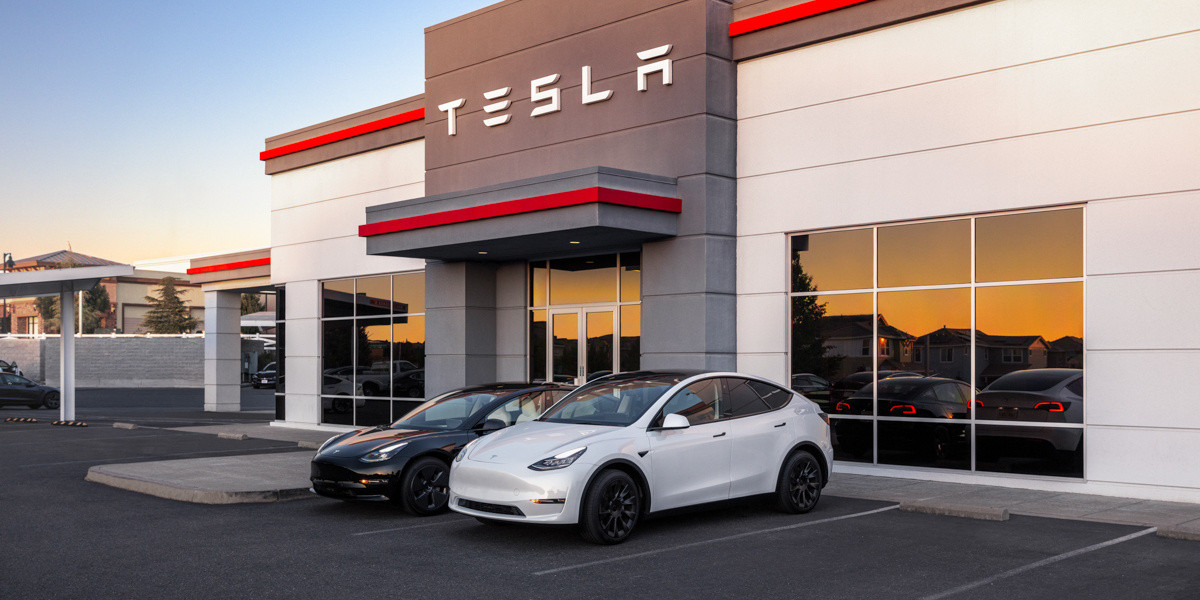
Tesla is likely going to be forced to fend off a new attack that is much different than the petty vandalism, arson, and domestic terrorism it has faced from those who oppose the company and its CEO Elon Musk. It would hurt consumers more than anyone else.
Over the past several months, we have reported numerous instances of vandalism against Tesla. No victim is too big or too small to be a potential target, as everything from keying vehicles to having Molotov cocktails thrown at showrooms is sufficient in the eyes of perpetrators.
However, the latest attack appears to be politically motivated and could hurt Tesla, its consumers, and even other automakers, and it seems to be some form of retaliation against Musk due to his affiliation with President Trump.
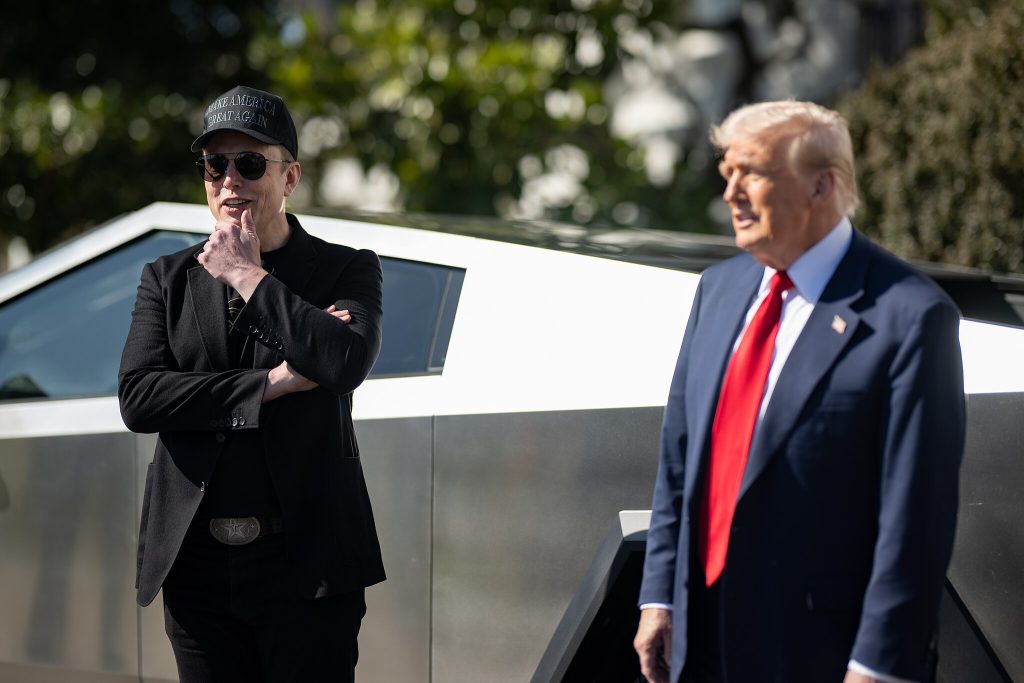
President Donald J. Trump purchases a Tesla on the South Lawn, Tuesday, March 11, 2025. (Official White House Photo by Molly Riley)
Lawmakers in New York state are now attempting to shut down Tesla showrooms in a move that would force the company to sell through dealer franchises, complicating the sales process and making the direct-to-consumer platform the company has used for years obsolete.
The New York Times reported that New York State Sen. Patricia Fahy is one of several lawmakers that is looking to hit Tesla where it hurts the most: its accessible and stress-free showrooms.
The problem is that this will hurt consumers more than Tesla.
Sen. Fahy said in March that the ease-of-sales platform Tesla uses has to be taken “from Elon Musk,” because “he’s part of an effort to go backwards.”
The licenses Tesla uses in the state allow it to sell cars directly to consumers instead of going through the traditional dealership model. These licenses, in Sen. Fahy’s perfect world, would be revoked from Tesla and given to other EV manufacturers. At one time, she was a proponent of Tesla and supported the company operating its D2C sales, stating it would cut emissions.
Now, Sen. Fahy believes Musk’s association with the Trump Administration is counterintuitive, as she says it is “killing all the grant funding for electric vehicle infrastructure, killing wind energy, killing anything that might address climate change.”
She continued by stating:
“The bottom line is, Tesla has lost their right to promote these when they’re part of an administration that wants to go backwards. Elon Musk was handed a privilege here.”
The bill is with the Senate and Assembly Finance committees.
-
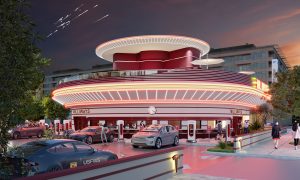
 News1 week ago
News1 week agoTesla’s Hollywood Diner is finally getting close to opening
-
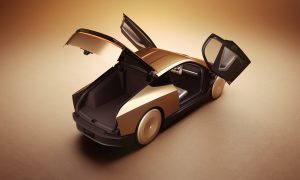
 Elon Musk2 weeks ago
Elon Musk2 weeks agoTesla doubles down on Robotaxi launch date, putting a big bet on its timeline
-

 News4 days ago
News4 days agoTesla is trying to make a statement with its Q2 delivery numbers
-
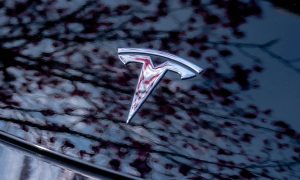
 News2 weeks ago
News2 weeks agoTesla’s top investor questions ahead of the Q1 2025 earnings call
-

 News2 weeks ago
News2 weeks agoUnderrated Tesla safety feature recognized by China Automotive Research Institute
-
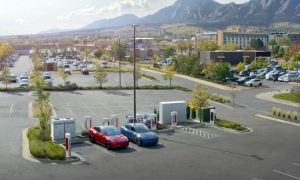
 News2 weeks ago
News2 weeks agoTesla reveals its Q1 Supercharger voting winners, opens next round
-
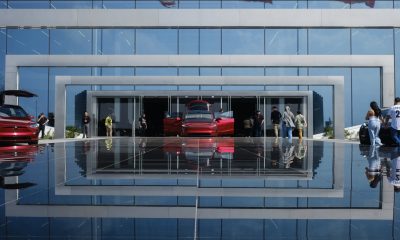
 Investor's Corner7 days ago
Investor's Corner7 days agoLIVE BLOG: Tesla (TSLA) Q1 2025 Company Update and earnings call
-
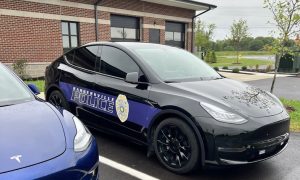
 News2 weeks ago
News2 weeks agoTesla police fleet saves nearly half a million in upkeep and repair costs

